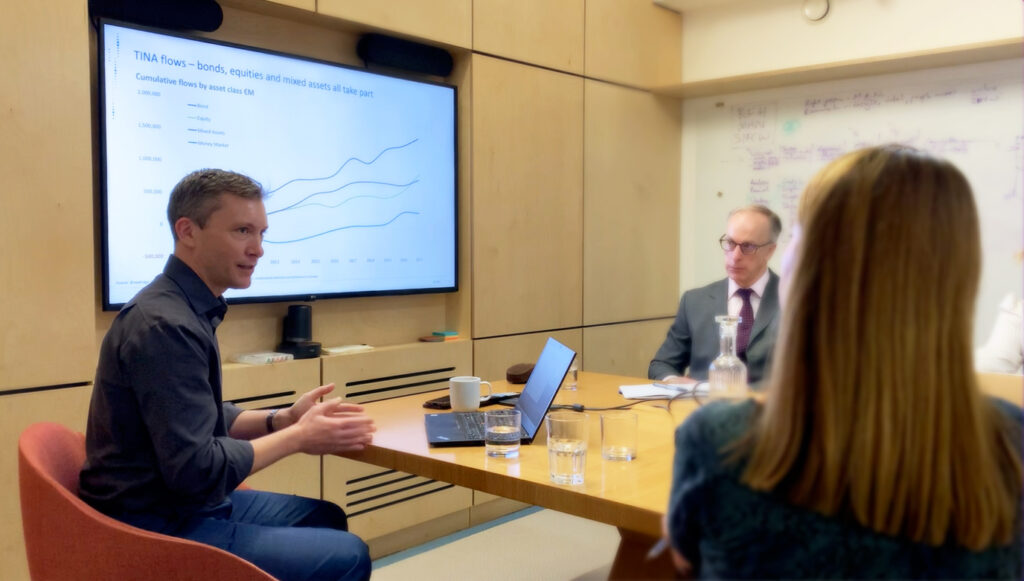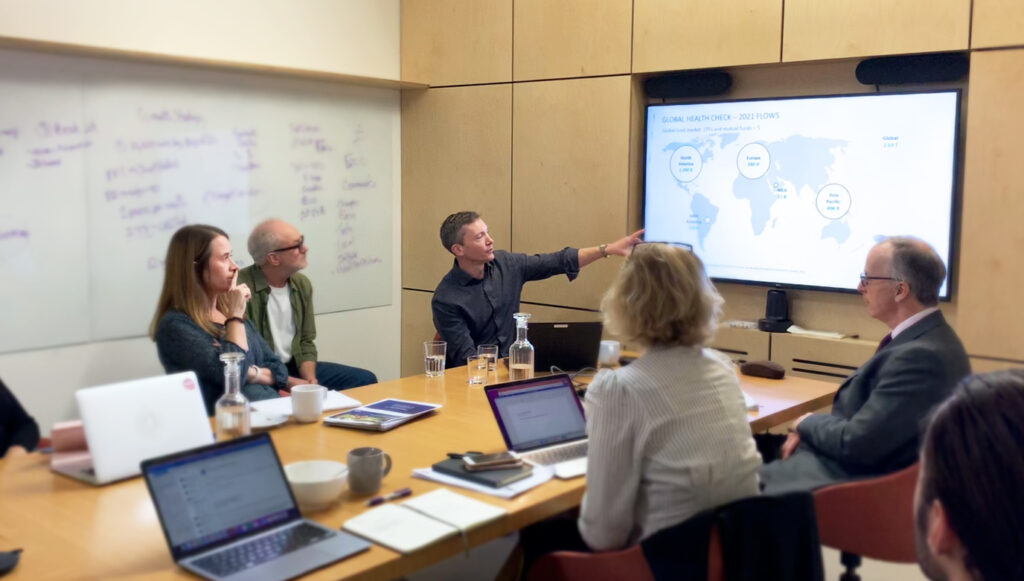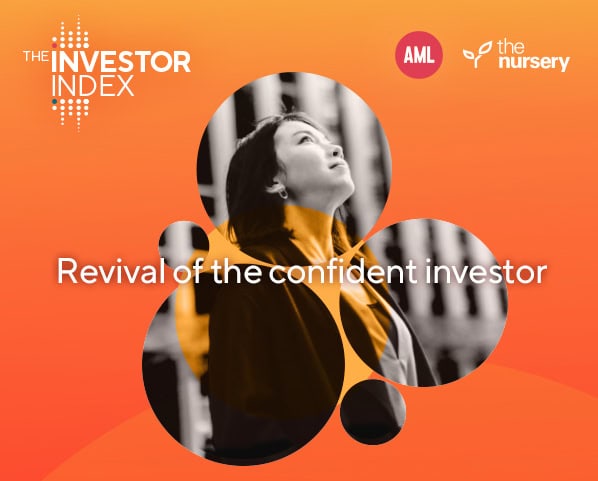For the final talk in our Autumn business planning series at AML, we were delighted to welcome Chris Chancellor and Simon Critchlow of Broadridge to the Tea Building. They discussed the health of the Asset Management industry and their views of where it may all be heading.
Going south – and east:
Unsurprisingly, 2022 fund flows are down and shifting over 2021 – some €700bn down in the US, €200bn in Europe – but an increase of €200bn in APAC (with China surging as the more traditional centres lose out). In China in particular, we heard of YouTube sales pitches where managers talk through the fund idea while ‘subscribe now’ messaging scrolls across the screen. A seeming regulatory Wild West, out east.
Lessons not learned:
We discussed how the fall-out from 2008 seem to have gone unheeded. Perhaps flows have rebounded so strongly over the last 14 ‘golden’ years that the way supposedly uncorrelated equities and bonds fell as one has been overlooked. For selectors, maybe the distraction of surging equity values, unbalancing portfolios to prompt bond investing, proved too strong to allow focus on true diversification (beyond a nod towards Alts over the period). We find ourselves with a very similar story in the melt-down of 2022.
The mindset of the golden years, according to Broadridge, was FOMO. With history repeating itself, triggered in part by the pandemic and the Russian offensive in Ukraine, it seems to have become FOLD (fear of losing dough – and so ‘folding’ to cash). Today advisers are increasingly hugging their indexes, running to passive as they find the business of tactical – let alone strategic – asset allocation just too hard. Many have outsourced to providers over the last decade and so now, according to Broadridge, are “… going to just sit on my hands and do nothing.”
Broadridge believe that, passive or active, in times of crisis an Asset Manager needs to be: “more visible … more communicative, more to your point, more transparent and more detailed … closer to your clients.”
What else do they predict for the future?
Products:
With higher interest rates we’re already seeing a return of ‘guaranteed’ and protected products, which will obviously appeal in the ‘FOLD’ era. For the more sophisticated investor, we’re seeing flow growth towards private markets. Providers and selectors that put themselves at the front of the argument for new, genuine diversification strategies, will be in a strong position.
Storytelling:
As important as the ‘what’ and ‘how’ of products and asset selection are, winning and developing business will hinge even more on the ‘why’. Particularly if you’re going to command fees – for fund ideas or advice – you need a story to tell. Whether your belief lies in RI, EM, Thematics or active in general, explaining why you are in these investments at all will be increasingly key to persuading others of your convictions.
With shrinking buy lists – down 25% in Europe, and now hovering above double figures in Asia – if you can’t be a one stop shop you likely need to be a boutique specialist with a very compelling story to tell and for the selector to pass on. It is key that Asset Management firms know, as Broadridge put it, ‘What is my persona to get in that (buy list) mix?’
Service:
Broadridge see Asset Management moving, “from a product industry to a service industry”. Providers increasingly need to be thinking in an audience-of-one territory, “there’s no point me having a big wide message for everyone. That isn’t going to fly in the future.” And all of that requires a greater emphasis on partnership, segmentation and tailoring.
Process integration:
Finally, our guests argued for more joined-up firms, where, “importantly, sales, marketing and product and probably others, have to work together” as inclusive partners and with less hierarchy. They cited the top brands in their global Fund Buyer Focus research, on the key attribute of ‘brand preference’, as the ones that do that best.




